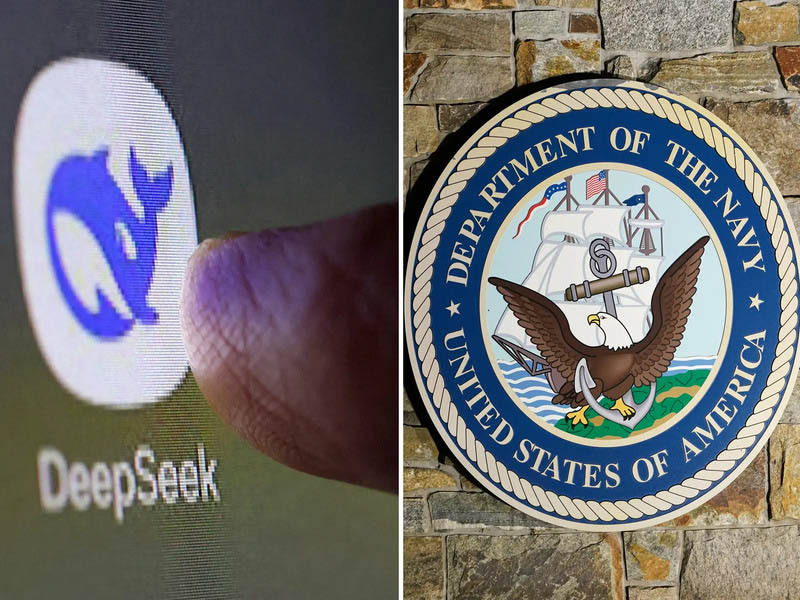
US Department of Commerce Blocks DeepSeek, Strict Privacy Policy in Europe
Tech by Android – US Department of Commerce Blocks DeepSeek, Strict Privacy Policy in Europe
The US Department of Commerce has officially restricted its employees from accessing the artificial intelligence (AI) chatbot DeepSeek on government-owned devices. This decision was communicated internally in recent weeks, according to sources who shared the information with Reuters.
“To maintain the security of the Department of Commerce’s information systems, access to the new Chinese AI, DeepSeek, is generally prohibited on all Government Furnished Equipment (GFE),” read a portion of the email sent to employees, as reported by Reuters on Tuesday (March 18, 2025).
GFE refers to Government Furnished Equipment, which includes all devices provided by the government. Employees were explicitly instructed not to download, access, or view any applications related to DeepSeek, including desktop applications and web-based platforms.
The Department of Commerce has yet to issue an official response regarding the announcement. Therefore, it remains unclear what sanctions will be imposed on employees who violate this directive.
“Read more : Steam Holds Spring Sale 2025, Game PC Valve Discounts Up to 75 Percent“
Before the Department of Commerce’s ban, DeepSeek had already been restricted in several key US government institutions. The Office of the Chief Administrative Officer of the US House of Representatives had previously prohibited employees from installing DeepSeek on government-inventoried smartphones, computers, and tablets.
Similar restrictions have been enforced across the US Department of Defense, including the Pentagon, the US Navy, and NASA. The growing concern over DeepSeek’s security implications has prompted further legislative action. The federal government is now drafting a bill that could enforce a complete ban on DeepSeek across the country.
Under this proposed legislation, individuals and corporations violating the restrictions may face severe penalties, including fines and imprisonment.
The rise of DeepSeek in early 2025 caused a significant stir in the tech industry. DeepSeek R1, the AI model behind the chatbot, was widely discussed for its potential superiority over ChatGPT, which was developed by OpenAI, a US-based company.
DeepSeek claims to offer more advanced capabilities despite being powered by lower-specification technology. However, security concerns have overshadowed its potential benefits, leading to restrictions in multiple countries.
Several nations, including Taiwan, Italy, Australia, and South Korea, have begun implementing limited bans on DeepSeek. Some governments have raised concerns about data privacy, prompting them to evaluate the risks posed by the AI model before allowing broader access.
“Read more : Fundamental Principles of Radiation Safety Protection, Health Risks Radiation Levels“
Germany and France are currently assessing the impact of DeepSeek on the European Union’s General Data Protection Regulation (GDPR). These nations aim to ensure that the AI does not violate the region’s strict privacy policies.
The European Union has some of the world’s toughest data protection laws, and any AI platform operating within its jurisdiction must comply with stringent regulations. Authorities in both countries have indicated that if DeepSeek fails to meet GDPR standards, it may face a total ban across the EU.
Additionally, Japan has initiated an investigation into DeepSeek’s potential risks to data security. The government is concerned about the possibility of sensitive information leaks. India has also signaled similar concerns, evaluating whether a ban on DeepSeek would be necessary. India has a history of restricting Chinese applications due to security threats, making a ban on DeepSeek a likely possibility.
As AI continues to evolve, data security remains a top priority for governments worldwide. The increasing capabilities of AI models like DeepSeek have led to widespread concerns about their implications for national security and data privacy.
The US and its allies are actively monitoring developments in AI technology and considering stricter regulations to safeguard critical information. These actions reflect an ongoing effort to balance technological advancement with security and privacy protection.
For more updates on AI and cybersecurity developments, visit Tech by Android or techbyandroid.com.